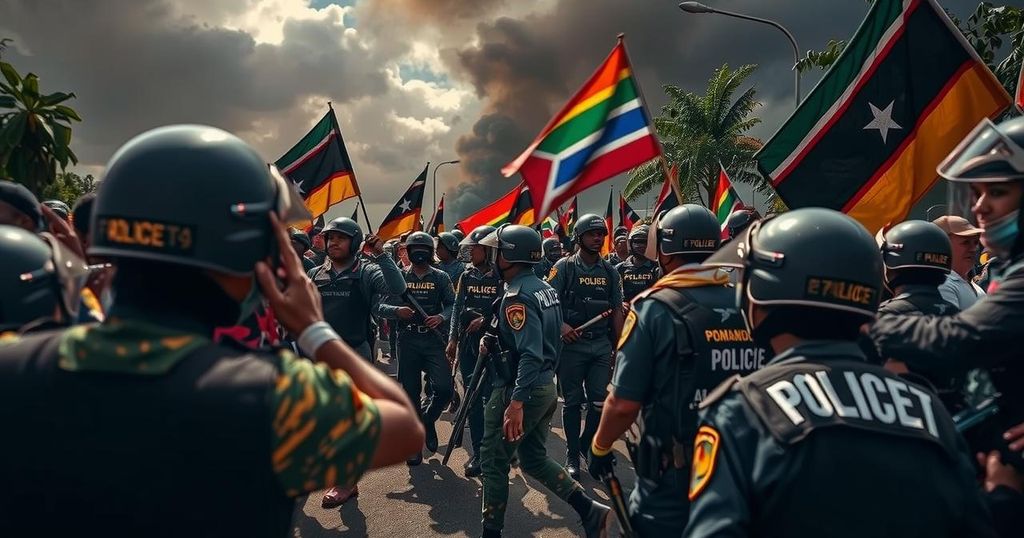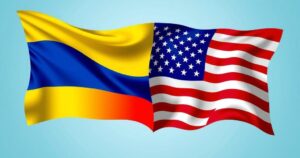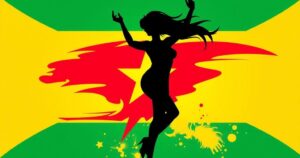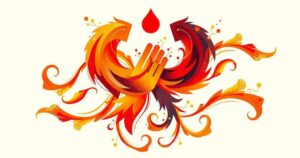Mozambique’s Post-Election Protests: A Struggle for Democracy Against Decades of Rule

Following the October 9, 2024 elections, protests in Mozambique have surged as opposition parties and citizens allege electoral fraud. The ruling Frelimo party continues its decades-long rule amidst increasing tensions and a violent police crackdown, leading to at least 20 reported deaths and significant unrest. Prominent opposition figures have been targeted, exacerbating fears of political persecution and shaping public anger toward the government. As protests broaden, the nation faces an uncertain political future amid cries for reform and accountability.
Mozambique has witnessed escalating protests following the October 9, 2024 elections, which resulted in the ruling Front for the Liberation of Mozambique (Frelimo) extending its long-standing governance. These protests erupted as citizens and opposition groups alleged widespread electoral fraud, claiming the elections were marred by ballot manipulation and intimidation at polling stations. The unrest led to violent clashes with police, resulting in significant casualties and heightened security measures, including internet restrictions and border closures by neighboring South Africa. Protests intensified on November 7, 2024, as demonstrators in Maputo rejected the election results, while reports indicate at least 20 fatalities attributed to police actions, with local organizations suggesting the death toll may be higher. Amidst the turmoil, calls for national strikes and mass protests have emerged, particularly from opposition candidate Venancio Mondlane, who has called for solidarity among citizens to challenge Frelimo’s grip on power. The elections were significant as they marked the continuation of a party that has ruled since Mozambique’s independence in 1975. With both international observers and local rights groups noting irregularities, the legitimacy of the electoral process is under serious scrutiny. Following the assassination of key opposition figures, fears of political persecution have forced some leaders, including Mondlane, into hiding, further complicating the situation as public anger towards the government deepens. The political atmosphere in Mozambique is exacerbated by the longstanding legacy of civil strife, coupled with the current insurgency in Cabo Delgado. The unrest reflects broader societal frustrations against the ruling elite and a desperate need for political reform. As protests spark nationwide and police crackdowns escalate, the future of Mozambique’s political landscape remains uncertain. Historical context reveals that the political fabric of Mozambique has been shaped by a bloody civil war and ongoing violence, with opposition groups like Renamo highlighting the enduring struggle for democracy and justice in the region. As the nation braces for further conflict, international attention remains focused on Mozambique’s path forward, with hopes for a peaceful resolution amidst rising tensions.
The political crisis in Mozambique is rooted in ongoing dissatisfaction with the ruling party, Frelimo, which has had a firm hold on power for decades. Following the October 9, 2024 elections, allegations of electoral fraud provoked widespread protests, exposing the public’s disillusionment with the electoral process and governance in the country. The unrest has drawn attention to the troubling history of political violence and instability in Mozambique, where factions often resort to aggression to achieve their aims. Recent violent incidents, including the assassination of opposition figures, have intensified conflicts, complicating Mozambique’s path toward a consolidated democracy amidst persistent unrest.
In conclusion, the ongoing protests in Mozambique highlight a critical juncture for the nation as citizens demand accountability and truth in governance. With a majority of the population discontented by considered electoral malpractices and fueled by a historical context of violence and strife, the potential for further upheaval exists. The current tension between protesters and authorities highlights the urgency for political dialogue and reform, as Mozambique grapples with the implications of its political legacy and seeks to secure a more democratic future.
Original Source: apnews.com







